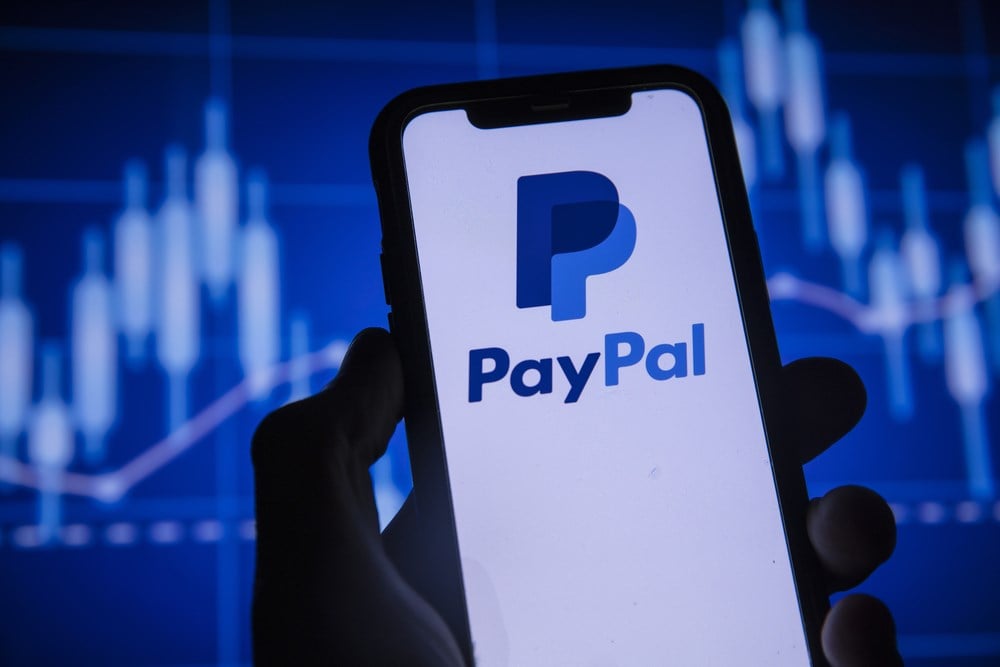
Shares of PayPal (NASDAQ: PYPL) has given investors a brutal 2021-2023 period, full of swings and stress, as the stock gave up more than 80% of its value, which reached an all-time high level as recent as 2021. As investors will soon find out, the company's second-quarter 2023 earnings results should have been enough to send the stock flying by double-digit percentage points.
However, just the opposite is taking place, as the stock is declining by as much as 7% during the post-market hours of Wednesday evening. A significant disconnect between the market's initial reaction to earnings, relative to what was announced in the earnings release opens up the possibility of some undervaluation present in today's prices.
Broader markets and analysts are putting their necks on the line as they shake hands and agree on a mouth-watering double-digit upside potential ceiling from today's prices. Investors should not let these subtle hints pass them by, as this could be an opportunity to invest in an industry leader at firesale prices., stacking the odds in their favor.
Blowout Results
Despite underlying signs of a slowing economy in the United States, which affects the most cyclical pockets, such as small business transactions and online shopping, PayPal's superior business model has pushed past this significant hurdle. As management states within their release, net volumes rose by as much as 11% during the past twelve months, reiterating that the company's operations are significantly detached from the cycle.
This volume translates into a net revenue increase of 7%, which is not impressive for a tech company. However, taken side by side with the country's rampant inflation rates, investors can deduce that management's goals were to sustain the top-line growth right along with inflation; while also maintaining a competitive pricing strategy allowing for aggressive volume growth.
Keeping the facts and figures aside for a second, the reputational value that PayPal carries can also significantly contribute to pushing volumes and adoption rates higher. Many small businesses and individuals prefer to transact with PayPal as their middleman, as the quality stamp and security aspects make trusting the platform a lot easier.
Going back to the meaty goods within PayPal's results, payment transactions per active account grew by an astonishing 12% over the year, considering a total opening of 2 million new accounts during this period. These KPIs (Key Performance Indicators) are pushing higher, revving up the company's engine to spit out flames in the form of earnings per share (EPS).
The second quarter of 2022 delivered a net loss per share of $0.29; a year later, this metric has grown to $0.92, translating into a monstrous 414% annual advance. This measure by itself should have been enough to send the stock flying back up to the most proximate resistance level. However, nothing changed when it came to price action.
Shareholders are also in for an upcoming surprise now that PayPal and KKR (NYSE: KKR) have agreed to unload the 'Buy Now Pay Later' credit portfolio for European users. This transaction will open further liquidity for PayPal and represent a potential $1.8 billion in total proceeds, which may trickle down to investors via share repurchases or other beneficial initiatives.
Is There Any Upside?
PayPal analyst ratings are pushing for a 32.6% consensus price target upside from today's prices, which by itself should make some investors sit on the edge of their seats. However, a proper justification for these targets must be made into the show before the curtains drop. Aligning market expectations when it comes to valuations, as well as management guidance provided within the release, helps close the loop here.
Earnings per share for the full year 2023 are expected to rise toward $4.95 approximately, compared to $4.13 a year prior. This would represent an increase of around 20%, yet another blockbuster rate for investors to salivate over. Understanding that money likes growth, especially when it is forecasted by management, markets are beginning to make PayPal their new favorite stock in the sector.
Spreading out forward valuation multiples, like the forward price-to-earnings ratio, investors can begin to gauge where the market interest and perception of quality lie for the future. Compared to the traditional P/E, the forward P/E accounts for the next twelve months of earnings rather than the past twelve months, acting as a measure of future expectations.
PayPal stock is trading for a 13.0x ratio, significantly higher than competitors like Capital One Financial (NYSE: COF) and Discover Financial Services (NYSE: DFS). Capital can be picked up today for a mere 8.5x ratio, while Discover is at an even lower 7.8x multiple. Some may argue that these valuations only make PayPal the more expensive alternative; however, there are good reasons for this being the case.
Just like any other product or service, price is what customers pay, and value is what they get. In the case of PayPal, these higher multiples are what markets are willing to pay today for a future stratospheric growth rate in earnings. Analysts see the upside as a result of this growth, management is pointing to affirming double-digit rates as well, and markets are all the more excited to pay a premium for a ticket into this ride.





